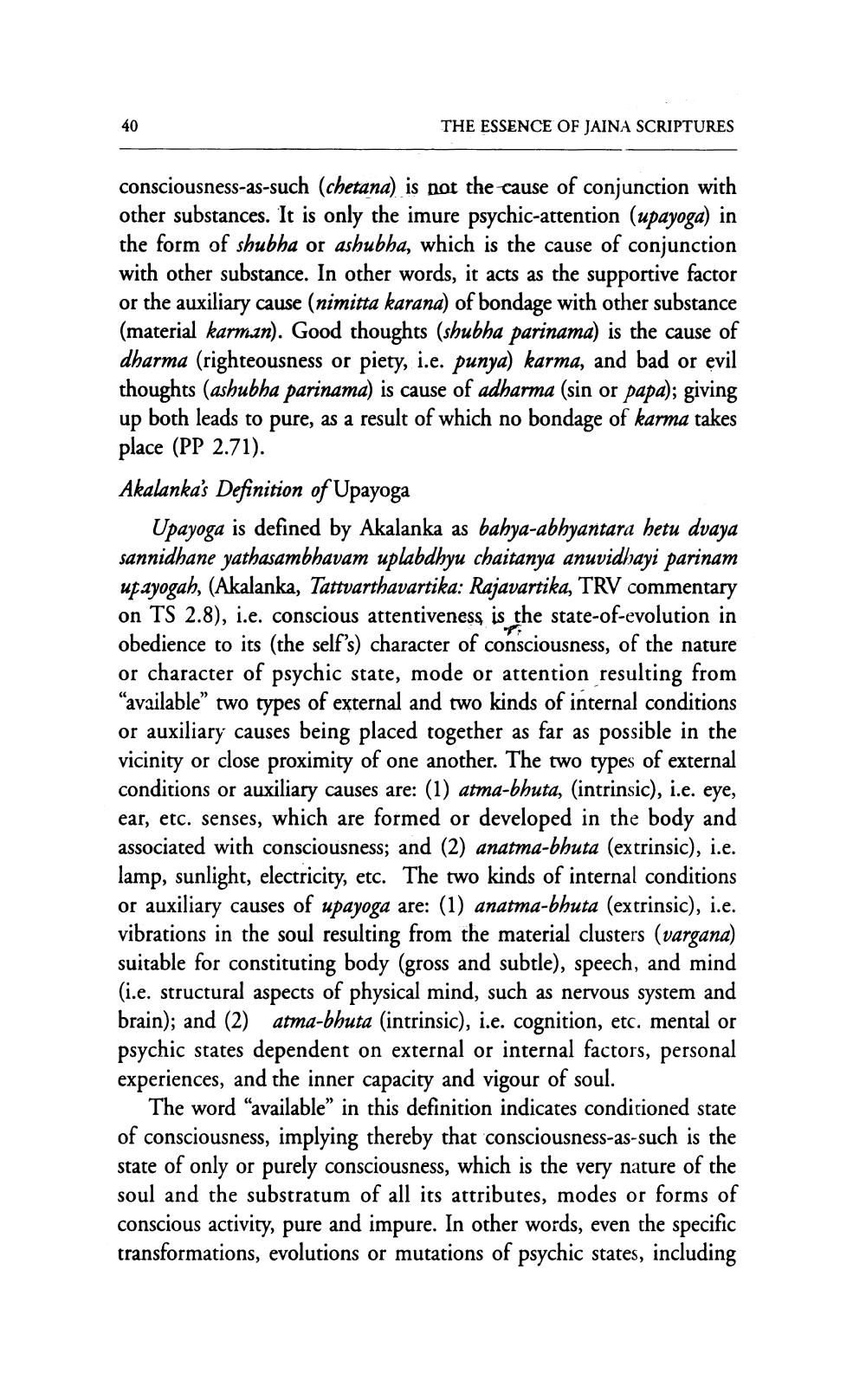________________
40
THE ESSENCE OF JAINA SCRIPTURES
consciousness-as-such (chetana) is not the cause of conjunction with other substances. It is only the imure psychic-attention (upayoga) in the form of shubha or ashubha, which is the cause of conjunction with other substance. In other words, it acts as the supportive factor or the auxiliary cause (nimitta karana) of bondage with other substance (material karman). Good thoughts (shubha parinama) is the cause of dharma (righteousness or piety, i.e. punya) karma, and bad or evil thoughts (ashubha parinama) is cause of adharma (sin or papa); giving up both leads to pure, as a result of which no bondage of karma takes place (PP 2.71). Akalanka's Definition of Upayoga
Upayoga is defined by Akalanka as bahya-abhyantara hetu dvaya sannidhane yathasambhavam uplabdhyu chaitanya anuvidhayi parinam utayogah, (Akalanka, Tattvarthavartika: Rajavartika, TRV commentary on TS 2.8), i.e. conscious attentiveness is the state-of-evolution in obedience to its (the self's) character of consciousness, of the nature or character of psychic state, mode or attention resulting from "available” two types of external and two kinds of internal conditions or auxiliary causes being placed together as far as possible in the vicinity or close proximity of one another. The two types of external conditions or auxiliary causes are: (1) atma-bhuta, (intrinsic), i.e. eye, ear, etc. senses, which are formed or developed in the body and associated with consciousness; and (2) anatma-bhuta (extrinsic), i.e. lamp, sunlight, electricity, etc. The two kinds of internal conditions or auxiliary causes of upayoga are: (1) anatma-bhuta (extrinsic), i.e. vibrations in the soul resulting from the material clusters (vargana) suitable for constituting body (gross and subtle), speech, and mind (i.e. structural aspects of physical mind, such as nervous system and brain); and (2) atma-bhuta (intrinsic), i.e. cognition, etc. mental or psychic states dependent on external or internal factors, personal experiences, and the inner capacity and vigour of soul.
The word “available" in this definition indicates conditioned state of consciousness, implying thereby that consciousness-as-such is the state of only or purely consciousness, which is the very nature of the soul and the substratum of all its attributes, modes or forms of conscious activity, pure and impure. In other words, even the specific transformations, evolutions or mutations of psychic states, including




